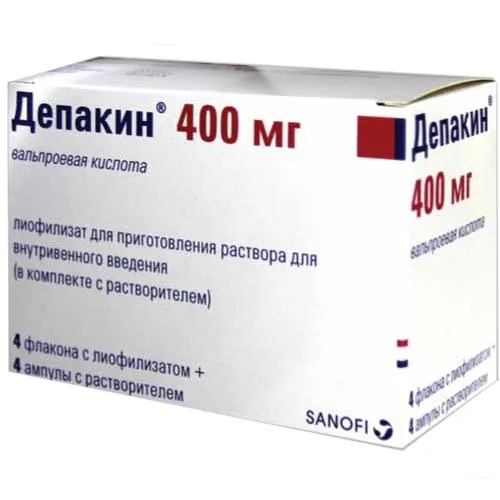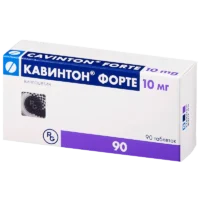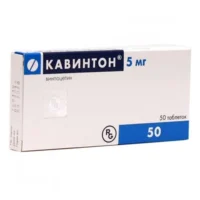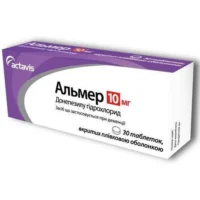Description
Depakin (Sodium Valproate) 400 mg Lyophilisate for Solution for Injections
Ingredients:
Each vial contains 400 mg of sodium valproate. The solvent provided is 4 ml.
Dosage:
The dosage should be individualized based on the patient’s condition and response to treatment. It is typically administered intravenously under medical supervision.
Indications:
Depakin is indicated for the treatment of epilepsy, bipolar disorder, and migraine headaches. It works by increasing the levels of gamma-aminobutyric acid (GABA) in the brain, which helps to calm overexcited nerve cells.
Contraindications:
Do not use Depakin if you have liver disease, urea cycle disorders, or a known hypersensitivity to valproate. It is important to discuss any existing medical conditions with your healthcare provider before starting treatment.
Directions:
Follow the instructions provided by your healthcare provider for the correct administration of Depakin. The lyophilisate should be dissolved in the provided solvent before injection.
Scientific Evidence:
Depakin, containing sodium valproate, has been extensively studied for its efficacy in the management of epilepsy and bipolar disorder. Research published in the Journal of Clinical Psychopharmacology demonstrated the effectiveness of sodium valproate in controlling manic episodes in patients with bipolar disorder.
Additional Information:
Pharmacological Effects: Sodium valproate exerts its antiepileptic and mood-stabilizing effects by enhancing GABAergic neurotransmission and modulating voltage-gated sodium channels in the brain. This mechanism helps to reduce neuronal excitability and prevent seizures in epilepsy.
Clinical Trials: A randomized controlled trial published in the New England Journal of Medicine compared the efficacy of sodium valproate with other antiepileptic drugs in the treatment of refractory epilepsy. The study concluded that sodium valproate was superior in reducing seizure frequency and improving quality of life in patients.





